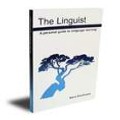Speaking a new language is natural. You need only cultivate the latent capabilities that you already possess, but which need to be properly stimulated. The way of the linguist is one that leaves you free to pursue your own needs and interests, rather than having to learn according to an externally imposed program. You develop skills that you have within you. You integrate with the target language, listening and imitating rather than learning from theory.
Man is most nearly himself when he achieves the seriousness of a child at play.
- Heraclitus Children learn languages using these natural methods. They just want to communicate. They cannot read grammars, they do not do drills, they do not prepare for tests. They just naturally want to learn. At birth, children of all nationalities have the same innate ability to learn a new language. It is true that children normally learn their mother tongue, but they possess a universal language instinct that will enable them to learn any language.
Children are exposed to a limited range of content which matters to them: the language of their parents and their friends at play. They concentrate on the words and phrases that are important to them and find opportunities to use them. They are not concerned about making mistakes of pronunciation or grammar. Children absorb the language without resistance. Unlike the classroom language learner, they are not constantly corrected but are encouraged in their efforts to speak.
Children learn naturally, but adults can learn faster than children. When I studied Mandarin Chinese or Japanese I was able to read the newspaper and have serious discussions within six months. It takes a child longer to reach that level of vocabulary. Adults can use their greater knowledge and broader interests to direct their learning, and can progress quickly.
As a linguist, you should create your own customized curriculum. If you control your learning, you will learn faster. In listening and reading, comprehension depends on context. When listening to or reading material that you have chosen and where the background is familiar, your comprehension is higher than when you are struggling through uninteresting material. This is the natural way to build confidence and fluency in a non-stressful way.
Gradually your range of interests will take you into new areas, thus expanding your language ability. But the decision of what to study should be yours. Furthermore, if you accept the responsibility to seek out your own content, you will take a major step towards cultivating the self-reliant attitude needed for success in language learning.
Fred Genesee of McGill University, a leading researcher on language learning and the brain, explains what happens when we learn a new language: When learning occurs, neuro-chemical communication between neurons is facilitated, in other words a neural network is gradually established. Exposure to unfamiliar speech sounds is initially registered by the brain as undifferentiated neural activity. As exposure continues, the listener (and the brain) learns to differentiate among different sounds and even among short sequences of sounds that correspond to words or parts of words Students' vocabulary acquisition can be enhanced when it is embedded in real-world complex contexts that are familiar to them. Through intensive and repetitive exposure to enjoyable language material you will bathe your mind in the new language. This process is sometimes referred to as an "input flood" which trains your mind and prepares it for the more difficult task of expressing yourself in the new language. The linguist accepts the new language without resistance, confident that with enough exposure the difficulties of the language will gradually be overcome.
Language learning is not primarily an intellectual activity. It requires enthusiasm and repeated and concentrated exposure to language contexts that become familiar over time. I have often observed that foreign professional athletes in North America are good language learners, often more successful than foreign university professors. Hockey or basketball players are able to deliver fluent interviews on television, whereas the more intellectual professors are likely to have very strong accents and speak in a more stilted and unnatural manner. The reason is that athletes have constant informal verbal interaction with teammates. They need to fit into the team or they will not perform well. They learn quickly, immersed in the comfortable and familiar environment of their sport.
Unlike the athlete on a team, most language learners are not exposed to constant and familiar language contexts. That is why it is so important to create your own curriculum based on learning contexts which cater to your interests and needs. Following your interests is the natural way to learn. The greater your range of interests, the more curious you are about the world around you, the better you will learn.

